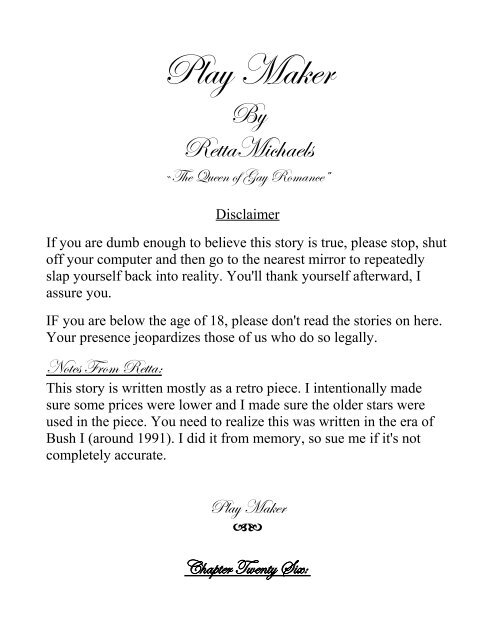Can You Sue Someone for a Promissory Note?: Legal Options Unleashed
Yes, you can sue someone for a promissory note if they fail to fulfill their repayment obligations. When an individual or business borrows money and signs a promissory note, it becomes a legally binding agreement.
If the debtor fails to make the agreed-upon payments, the lender has the right to take legal action and sue the debtor to enforce the terms of the promissory note. In this situation, the lender would need to gather evidence of the debt and the borrower’s failure to meet their obligations, and file a lawsuit in court to seek repayment.
A successful lawsuit can result in a judgment in favor of the lender, which may include repayment of the debt, plus any associated costs and interest.
The Basics Of A Promissory Note
A promissory note is a legally binding document between two parties that outlines the terms and conditions of a loan or payment agreement. It serves as evidence of a debt owed by one party (the borrower) to another party (the lender). In simple terms, a promissory note is a written promise to repay a specific amount of money within a specified timeframe and at a specified interest rate.
What Is A Promissory Note?
A promissory note is a financial instrument that establishes a formal agreement between a borrower and a lender. It serves as a legal evidence of a debt and contains written promises to repay the borrowed amount. In essence, it provides clarity and protection for both parties involved by clearly stating the terms and conditions of the loan.
By signing a promissory note, the borrower acknowledges the debt owed and agrees to repay the borrowed amount in accordance with the agreed-upon terms. This document also acts as a record of the loan, making it easier to enforce repayment if necessary.
Key Components Of A Promissory Note
A promissory note typically includes several key components that define the terms and conditions of the loan agreement. These components may vary depending on the specific requirements of the parties involved, but the following elements are commonly included:
- Parties: This section identifies the borrower and the lender by their legal names and addresses. It is important to accurately include the correct information of both parties.
- Principal Amount: This refers to the initial amount of money borrowed by the borrower. It is important to clearly state the principal amount to avoid confusion or disputes.
- Interest Rate: This specifies the rate at which interest will accrue on the borrowed amount. It is crucial to mention the interest rate to ensure both parties understand the financial implications of the loan.
- Repayment Terms: This outlines the agreed-upon repayment schedule, including the amount of each payment, the frequency of payments, and the due dates. It is essential to clearly define the repayment terms to avoid any misunderstandings.
- Default: This section explains the consequences if the borrower fails to fulfill their repayment obligations. It typically includes information about late fees, penalties, and any legal actions that can be taken in the event of default.
- Collateral: In some cases, a promissory note may include provisions for collateral, which is an asset that the lender can seize if the borrower fails to repay the loan. Collateral provides additional security for the lender.
By having these key components clearly stated in a promissory note, all parties involved can have a thorough understanding of their rights and responsibilities. It is crucial to carefully review and ensure the accuracy of the information contained in the promissory note before signing it, as it serves as a legally binding contract.
Understanding The Legal Validity
When it comes to financial agreements, promissory notes play a crucial role. These legal documents outline the terms of a loan, including the amount borrowed, interest rates, repayment schedules, and other relevant details. However, disputes may arise, and it’s essential to understand the legal validity of a promissory note before considering legal action. In this section, we will delve into the enforceability of promissory notes and potential defenses that may be raised in a lawsuit.
Enforceability Of Promissory Notes
In the context of promissory notes, enforceability refers to the ability to legally enforce the terms of the agreement. Generally, promissory notes are considered legally binding documents that can be used as evidence in court to seek repayment. However, certain factors may affect the enforceability of a promissory note:
- 1. Legally Competent Parties: For a promissory note to be enforceable, both the lender and the borrower must be legally competent individuals or entities. This means they must have the legal capacity to enter into a binding contract.
- 2. Clear Terms and Conditions: The terms and conditions of the promissory note should be clear, unambiguous, and specific. Vague or uncertain language may render the note unenforceable.
- 3. Proper Execution: To strengthen the enforceability of a promissory note, it is crucial to ensure proper execution. This includes signing and dating the document, as well as obtaining any necessary witnesses or acknowledgments as per applicable laws.
It’s important to note that some jurisdictions may have additional requirements or specific rules governing promissory notes. Consulting with a legal professional familiar with local laws is advisable to ensure compliance and enforceability.
Potential Defenses To A Promissory Note Lawsuit
While promissory notes are designed to offer protection to lenders, borrowers may still raise various defenses in a lawsuit seeking enforcement:
- Fraudulent Inducement: If a borrower can prove that the lender fraudulently induced them to sign the promissory note by making false statements or concealing important information, the note’s enforceability may be challenged.
- Unconscionability: A borrower may argue that the terms of the promissory note are unreasonably unfair or oppressive, such as excessively high interest rates or undisclosed fees.
- Failure of Consideration: If the borrower can establish that the lender failed to deliver the promised consideration, such as not disbursing the loan amount, it may invalidate the enforceability of the promissory note.
These defenses are not exhaustive, and their applicability may vary depending on the specific circumstances of each case. Seeking legal advice from an experienced attorney is crucial when dealing with promissory note disputes.
Steps To Consider Before Filing A Lawsuit
Communication And Negotiation
Open communication is key when it comes to addressing issues with a promissory note. Engage in negotiations to attempt to resolve the matter without legal action. Clearly convey your concerns and try to reach a mutually beneficial agreement.
Considering Alternative Dispute Resolution
If communication and negotiation don’t lead to a resolution, consider alternative dispute resolution methods such as mediation or arbitration. These processes can often be more efficient and cost-effective than going to court, and they allow both parties to be involved in finding a solution.

Credit: us.macmillan.com
The Lawsuit Process
When it comes to enforcing a promissory note, sometimes legal action is necessary. If someone has defaulted on their payment obligations outlined in the promissory note, you may have grounds for a lawsuit. This section will outline the process of filing a lawsuit and the legal remedies available to you.
Filing A Lawsuit
If you’ve exhausted all other options and have decided that pursuing legal action is necessary, the first step is to file a lawsuit. This involves preparing a complaint that outlines the details of the promissory note, the specific breach of contract, and the damages you are seeking. It’s essential to consult with an attorney familiar with contract law and litigation processes to ensure your complaint is comprehensive and adheres to legal requirements.
Here is a breakdown of the general steps involved in filing a lawsuit:
- Consult with an attorney: Seek the advice of a qualified attorney who specializes in contract law and litigation. They will guide you through the process and help you build a strong legal case.
- Prepare the complaint: Work with your attorney to draft a complaint that clearly states the details of the promissory note, the default in payment, and the damages you are seeking. It’s crucial to provide all relevant documents and evidence to support your claim.
- File the complaint: Once the complaint is prepared, it needs to be filed with the appropriate court. Your attorney will handle the filing process and ensure all necessary paperwork is submitted correctly.
- Serve the defendant: After the complaint is filed, the defendant must be formally served with a copy of the complaint and a summons. This is usually done by a process server or a certified mail service to ensure legal requirements are met.
- Response from the defendant: Upon receiving the complaint, the defendant has a specified period to respond. They can either admit to the allegations, file a motion to dismiss, or file an answer disputing the claim.
- Discovery: Once the defendant responds, both parties engage in the discovery process where they exchange information, gather evidence, and take witness depositions. This stage allows each party to strengthen their case.
- Pre-trial motions: Throughout the lawsuit, either party can file pre-trial motions to address specific issues or seek resolution before trial. These motions can include summary judgment motions or motions to exclude evidence.
- Trial: If the case proceeds to trial, both parties present their arguments and evidence before a judge or a jury. The outcome of the trial will determine if the defendant is legally responsible for the breach of the promissory note.
- Judgment and enforcement: If the court finds in your favor, a judgment will be issued. However, it may be necessary to take further steps to enforce the judgment and collect the awarded damages. Your attorney can assist you in exploring the appropriate legal remedies available.
Legal Remedies Available
In a lawsuit involving a promissory note, several legal remedies may be available depending on the circumstances. It’s important to note that the specific remedies will vary based on applicable laws and the court’s discretion. Here are some commonly sought legal remedies:
- Monetary damages: The most common remedy is the awarding of monetary damages, which aim to compensate the injured party for financial losses resulting from the breach of the promissory note. The amount awarded will typically cover the outstanding debt plus any associated costs, such as interest or legal fees.
- Specific performance: In certain cases, a court may order specific performance, which requires the defendant to fulfill their obligations as outlined in the promissory note. This remedy is often sought when the subject matter of the contract is unique, and monetary damages would not suffice.
- Rescission: Rescission involves canceling the promissory note and restoring both parties to the position they were in before the agreement was made. This remedy is commonly sought when there has been a material misrepresentation or fraudulent inducement.
- Reformation: Reformation seeks to modify the terms of the promissory note to better reflect the original intentions of the parties involved. This remedy is typically pursued when there are errors or ambiguities in the contract language.
It’s important to consult with an attorney to determine which legal remedies are applicable to your specific situation and to navigate the lawsuit process smoothly.
Challenges And Considerations
When considering the possibility of suing someone over a promissory note, there are several challenges and important considerations to keep in mind. These can include the legal validity of the note, the evidence of the promise, and the potential costs and benefits of pursuing legal action.
Consulting with a legal professional can provide valuable guidance in navigating these challenges.
When it comes to dealing with a promissory note that has gone unpaid, you may wonder if you have the right to sue the person who made the promise. Before proceeding with legal action, however, there are several challenges and considerations that you need to keep in mind. These factors can greatly impact your decision and determine the feasibility of pursuing a lawsuit.
Time And Cost Considerations
One of the most significant challenges of suing someone over a promissory note is the time and cost involved. Legal proceedings can be time-consuming, and you should be prepared for the process to stretch out over months or even years. Additionally, filing a lawsuit comes with expenses such as court fees, attorney fees, and other related costs.
Table 1: Average duration and cost of legal proceedings for a promissory note case.
| Phase of Legal Proceedings | Average Duration | Average Cost |
|---|---|---|
| Pre-trial Negotiations | 2-6 months | $1,000-$5,000 |
| Discovery | 6-12 months | $5,000-$15,000 |
| Trial | 1-3 months | $10,000-$30,000 |
| Appeal | 6-12 months | $5,000-$15,000 |
Consider whether the potential financial outcome of winning the lawsuit justifies the time and money you will invest. It’s crucial to weigh the costs against the amount of the promissory note and the likelihood of successfully recovering the funds owed.
Possible Impact On Relationships
Another important consideration before suing someone over a promissory note is the potential impact on your relationship with the person in question. Legal disputes can strain personal and professional connections, leading to damaged relationships and increased animosity.
While the promissory note may indicate a legal obligation, it’s essential to assess the value of your long-term relationship with the borrower. Consider whether alternative dispute resolution methods, such as mediation or negotiation, could preserve your relationship while still working towards a resolution.
Ultimately, the decision to sue someone for a promissory note is a complex one. It requires careful consideration of the time and cost involved, as well as the potential impact on your relationship with the other party. By weighing these factors, you can make a more informed decision about how best to proceed in your specific situation.

Credit: us.macmillan.com

Credit: www.yumpu.com
Frequently Asked Questions On Can You Sue Someone For A Promissory Note?
Can You Sue Someone For A Promissory Note In Court?
Yes, you can sue someone for a promissory note in court. If the borrower fails to repay the debt as agreed, taking legal action can help you seek a judgment to recover the owed amount.
What Are The Legal Requirements To Sue Someone For A Promissory Note?
To sue someone for a promissory note, you need to establish that there is a valid promissory note, that the borrower has failed to make the required payments, and that you have made reasonable efforts to collect the debt. Consult with a lawyer to ensure you meet all the necessary legal requirements.
What Are The Possible Outcomes Of Suing Someone For A Promissory Note?
When you sue someone for a promissory note, there are various possible outcomes. You may win the case and obtain a judgment that enables you to collect the debt. Alternatively, the court may order a repayment plan, or the borrower may file for bankruptcy, affecting the repayment process.
Consulting with a lawyer can help you understand the potential outcomes in your specific situation.
Conclusion
Suing someone over a promissory note is a complex legal process that requires careful consideration and strategic planning. It’s crucial to understand the legal implications and gather sufficient evidence. Consulting with a legal expert is the best course of action to navigate this challenging situation efficiently.
{ “@context”: “https://schema.org”, “@type”: “FAQPage”, “mainEntity”: [ { “@type”: “Question”, “name”: “Can you sue someone for a promissory note in court?”, “acceptedAnswer”: { “@type”: “Answer”, “text”: “Yes, you can sue someone for a promissory note in court. If the borrower fails to repay the debt as agreed, taking legal action can help you seek a judgment to recover the owed amount.” } } , { “@type”: “Question”, “name”: “What are the legal requirements to sue someone for a promissory note?”, “acceptedAnswer”: { “@type”: “Answer”, “text”: “To sue someone for a promissory note, you need to establish that there is a valid promissory note, that the borrower has failed to make the required payments, and that you have made reasonable efforts to collect the debt. Consult with a lawyer to ensure you meet all the necessary legal requirements.” } } , { “@type”: “Question”, “name”: “What are the possible outcomes of suing someone for a promissory note?”, “acceptedAnswer”: { “@type”: “Answer”, “text”: “When you sue someone for a promissory note, there are various possible outcomes. You may win the case and obtain a judgment that enables you to collect the debt. Alternatively, the court may order a repayment plan, or the borrower may file for bankruptcy, affecting the repayment process. Consulting with a lawyer can help you understand the potential outcomes in your specific situation.” } } ] }





